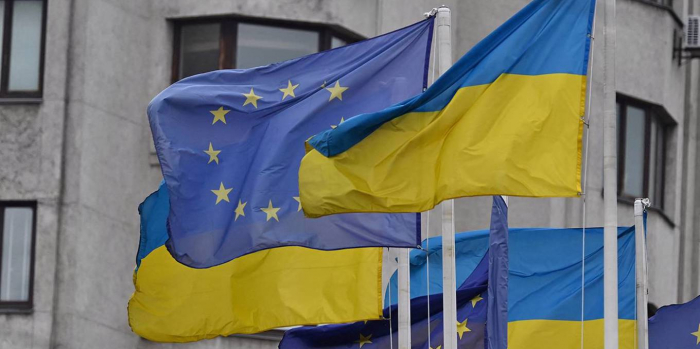Russian President Vladimir Putin’s intentions in Ukraine are not in doubt. He wants to end its status as an independent political entity and incorporate its territory within the Russian Federation. In his opinion, achieving this goal would undo two great historical errors committed in the last century: first, allowing a Ukrainian republic to exist within the Soviet Union, and, second, allowing this republic to become an independent nation-state.
How likely is this outcome? In theory, the Russian army could slog brutally across Ukraine’s vast plains for many years, reducing its urban centers to rubble. But one lesson from the areas Russia has managed to occupy since February 24 is that it also would need to establish a harsh regime of repression, forced Russification, and outright elimination of opponents. This would require a massive, widespread mobilization of resources in Russia.
So far, Putin has been reluctant to order any such mobilization, or even to speak in terms of war. In the four months since the invasion began, the Russian people have been told that there is merely a “special military operation” in Ukraine. Additional army recruitment has largely come from Russia’s less developed areas, where high unemployment leaves young men with few alternatives.
In any case, intensified repression and increasingly hysterical propaganda would be necessary to sustain a wartime mobilization within Russia. The Kremlin’s messaging would most likely focus increasingly on establishing a narrative making the case for a necessary, righteous war with the entire West, which will duly be described as a cohort of Nazis bent on destroying Russia. Mounting Russian casualties – which are already higher than from the decade-long Soviet war in Afghanistan – will be a problem; but if recruitment efforts steer clear of major urban areas, it might be manageable.
A fully mobilized Russia would be a country completely decoupled from the West. Since harsh sanctions will remain in place, Russian industry would be forced to climb down the technology ladder, putting a powerful brake on vast new oil and gas projects in the Arctic, where the Kremlin has staked the country’s economic future.
Russia would have to become dramatically more dependent on China. But it is unclear how long the Chinese government would play along with a “rescue Russia” policy, nor is there any reason to believe that India would choose Russia over the United States as its technology partner for the future. As the Kremlin’s intentions in Ukraine become clearer, any remaining international support is likely to dwindle further. Putin has set his country on a course that is highly problematic, if not utterly catastrophic.
Meanwhile, with its recent decision to make Ukraine (and Moldova) a candidate for membership, the European Union has taken a huge strategic step that will have far-reaching implications in the years ahead. Whereas Putin radically escalated his efforts to eliminate Ukraine in February, the EU has now doubled down on supporting the country and helping it build a brighter future.
Of course, formal Ukrainian membership is not imminent. While Ukraine made some progress by implementing an extensive free trade and association agreement with the EU in 2014, it still has a long way to go to meet all the requirements for membership. Nonetheless, by inviting Ukraine to join, the EU has committed itself to upholding the survival of the Ukrainian state in the face of the Russian onslaught. Apart from the military assistance now flowing in, this will require very substantial financial support for as long as Russia’s aggression continues. War is expensive.1
Europe has made the right move. The unraveling and eventual elimination of a European state would threaten all Europeans’ security, not to mention undermining global stability and opening a Pandora’s box of other issues. Are there any other borders in the vast space between the Vistula and Volga rivers where borders could be moved or eliminated, as they have many times before in history? Are there other states that could be eliminated from the roster of United Nations members? These are not idle questions. Putin has already indicated that he thinks as little of Kazakhstan’s sovereignty as he does of Ukraine’s.
The EU has made clear that it intends to stand firm in defense of existing states, recognizing that the inviolability of borders is the foundation of European security and global order. It therefore must be firm in not recognizing any Russian-occupied territory – including Crimea. It is now simply inconceivable that the EU will accept Ukraine’s violent dismemberment or elimination. The question, then, is whether Putin can agree to back down, or whether regime change or state collapse will be required to bring about a similar outcome. That is fundamentally where the aggressive war that Putin launched on February 24 is bound to lead.
Carl Bildt was Sweden’s foreign minister from 2006 to 2014 and prime minister from 1991 to 1994, when he negotiated Sweden’s EU accession. A renowned international diplomat, he served as EU Special Envoy to the Former Yugoslavia, High Representative for Bosnia and Herzegovina, UN Special Envoy to the Balkans, and Co-Chairman of the Dayton Peace Conference. He is Co-Chair of the European Council on Foreign Relations.
More about:
















































